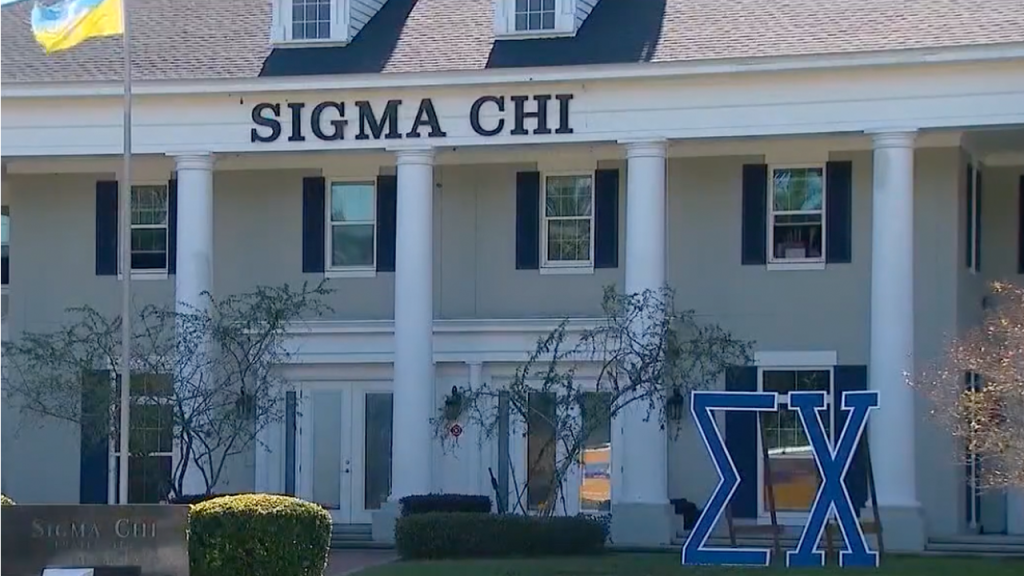An alarming situation has unfolded at the University of Central Florida (UCF) as two fraternities have been placed under interim organizational suspension following serious allegations of hazing. The fraternities, Sigma Chi and Delta Upsilon, face accusations of conducting dangerous and degrading rituals. Witness reports describe incidents involving physical harm, including alleged hit-and-run actions targeting pledges. An official investigation has been initiated, drawing attention to ongoing concerns about a hazing culture within the campus Greek system.
| Article Subheadings |
|---|
| 1) Context of the Allegations |
| 2) Details of the Incidents |
| 3) University Response and Actions |
| 4) Historical Issues with Fraternities |
| 5) Broader Implications of Hazing Culture |
Context of the Allegations
The troubling allegations surrounding Sigma Chi and Delta Upsilon at the University of Central Florida have ignited a conversation about hazing practices within Greek life on campuses nationwide. Reports indicate that both fraternities have engaged in unacceptable behavior, with hazing being described as “dangerous and degrading.” Such practices not only jeopardize the health and safety of new members but also perpetuate a culture of fear and intimidation. The university’s decision to suspend these organizations comes amidst a growing scrutiny and an increasing number of hazing incidents reported across the country, prompting universities to re-evaluate their Greek life policies.
Details of the Incidents
Specific details emerged from an incident report filed by the Orlando Sentinel, wherein it is alleged that Sigma Chi fraternity brothers struck pledges with a car as part of a hazing initiation ritual. A witness, a sorority member residing next to the Sigma Chi house, described a harrowing scene where she heard cries for help from a young man who had been hit, claiming, “my bones, my bones, they’re broken.” This incident has raised alarm among students and parents alike regarding the potential for serious injury or even death as a result of such reckless behavior. The timeline of events paints a grim picture: an initial incident occurred off-campus in November, while others followed closely between February and March, indicating a pattern of irresponsible conduct.
University Response and Actions
In response to the severity of the hazing allegations, UCF has placed both Sigma Chi and Delta Upsilon under an interim organizational suspension. This suspension restricts the fraternities from participating in any formal activities, which includes recruitment events and social gatherings. UCF officials have emphasized their zero-tolerance stance on hazing, declaring that they are fully committed to ensuring the safety of all students. The Assistant Vice President of Strategic Initiatives and Communications, Courtney Gilmartin, reiterated the university’s condemnation of hazing in all forms and highlighted that both fraternities are under active investigation by UCF Police for potential felony hazing violations. The administration has vowed to hold individuals and groups accountable for actions that endanger the well-being of students.
Historical Issues with Fraternities
The investigation into Sigma Chi is particularly concerning given its history at UCF. Records indicate that the fraternity has faced multiple suspensions in the past, with at least eight disciplinary actions taken against it from 2015 to 2020, four of which occurred in just 2019 alone. These prior issues included serious allegations of drug use and recklessness during hazing rituals, which, even with previous repercussions, did not deter further incidents. This troubling trend raises questions about the effectiveness of existing policies on Greek life and whether deeper systemic changes are necessary to combat the longstanding issue of hazing in collegiate settings.
Broader Implications of Hazing Culture
The recent events at UCF reflect a broader problem within many universities across the nation regarding the acceptance of hazing among fraternities and sororities. Many institutions are grappling with how to eradicate this perilous practice while balancing the tradition and community aspects of Greek life. The normalization of hazing rituals can lead to severe physical and psychological consequences for individuals, indicating that reformative measures are urgently needed. The continuous cycle of violence and intimidation associated with hazing has led to a significant reevaluation of Greek organizations and their activities at universities, as academic institutions seek to create a safer environment for their students.
| No. | Key Points |
|---|---|
| 1 | Two fraternities, Sigma Chi and Delta Upsilon, have been suspended by UCF amid serious hazing allegations. |
| 2 | The allegations include dangerous rituals such as a pledge being struck by a car during a hazing initiation. |
| 3 | UCF officials have initiated an active investigation, condemning hazing practices and ensuring student safety. |
| 4 | Sigma Chi has a history of hazing issues, with multiple suspensions dating back to 2015. |
| 5 | The incident has sparked wider conversations about hazing culture and its implications in college environments. |
Summary
The horrific hazing allegations surrounding the Sigma Chi and Delta Upsilon fraternities at the University of Central Florida highlight a pervasive issue affecting college campuses nationwide. With a history marred by repeated infractions, Sigma Chi’s troubling practices exemplify the urgent need for universities to adopt stricter measures against hazing. UCF’s swift action signifies a commitment to student safety, though the broader implications of hazing culture remain a pressing concern for educational institutions aiming to protect their students and eradicate dangerous traditions.
Frequently Asked Questions
Question: What is hazing?
Hazing is any activity involving harassment, humiliation, or danger, often as part of an initiation process into a group or organization.
Question: Why do universities take action against fraternities accused of hazing?
Universities enforce strict policies against hazing to ensure the safety and well-being of students and to foster a safe campus environment.
Question: How can hazing be prevented in fraternities and sororities?
Preventing hazing requires proactive education, strict enforcement of anti-hazing policies, and creating a culture of respect and accountability within organizations.


